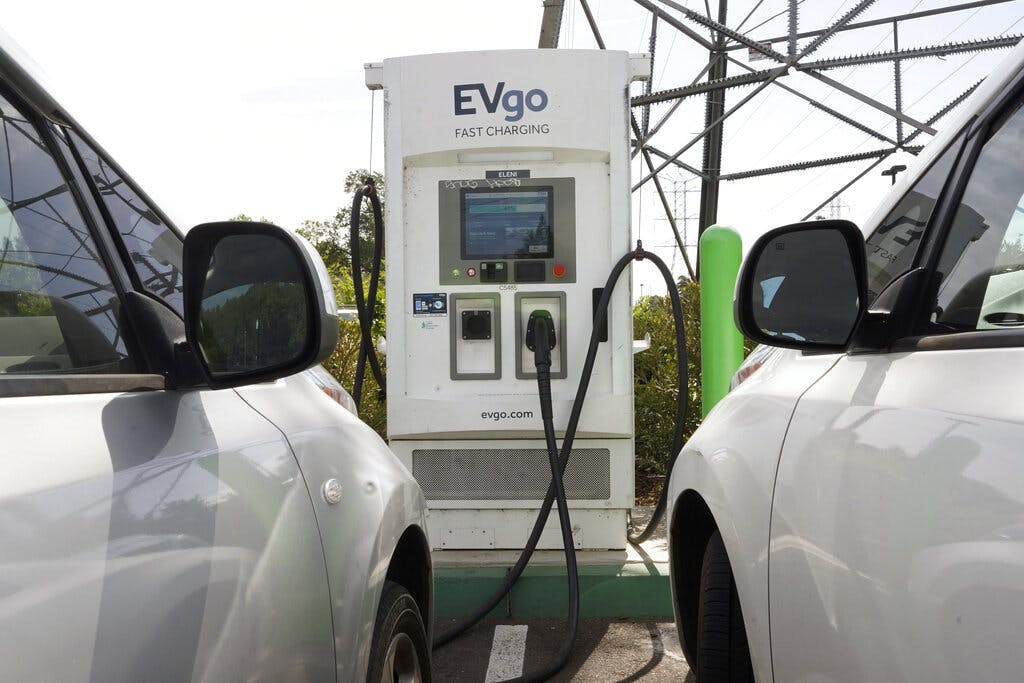Auto Dealers to Biden: Stop Trying To Force Americans Into Electric Vehicles
EVs have 79 percent ‘more problems than gas vehicles,’ the latest Consumer Reports data indicate.

Despite thousands of dollars in tax credits, manufacturer rebates, and national calls for more green energy, the Biden administration’s electric vehicle push isn’t resonating with consumers.
That’s the latest according to a letter this week to President Biden from 3,882 dealerships, calling on the president to “tap the brakes on the unrealistic government electric vehicle mandate” as electric cars sit on their lots for months without being sold.
The letter cites Biden administration regulations that “would essentially mandate a dramatic shift to battery electric vehicles (BEVs), increasing year after year until 2032, when two out of every three vehicles sold in America would have to be battery electric.”
The dealers say that while they believe “appeal will grow over time” for the electric cars, right now, consumers aren’t ready to buy them. Their words echo the Sun’s Dean Karayanis’s, who in August 2022 warned of a similar issue for California’s EV mandates, writing that the state was “putting the cart before the horse when technology and infrastructure don’t yet exist.”
“This is basically the voice of the consumer, this is not the dealer,” one dealership owner, Tom Maoli, told CNBC. “What’s happening is, the manufacturer is being forced to produce these EVs, they’re shipping them to the dealerships, and they’re backing up on the lots.”
“We have up to $15,000 in rebates from the manufacturer and $7,500 tax credits, we’re talking $22,500,” he says, noting that consumers still aren’t buying them because of fear over lack of infrastructure.
“The White House and the Biden administration got way out over its skis with this mandate,” he says. “The problem that exists now is they force the manufacturers to spend all this money to build these plants and produce these vehicles, but the consumers aren’t buying into it. They’re afraid of range. They’re afraid of where they’re going to charge.”
The latest EV reliability data, released Thursday by Consumer Reports, mark a grim outlook for the electric car push.
After collecting data on more than 333,000 vehicles between 2000 and 2023, Consumer Reports found that electric cars and SUVs were near the bottom of its reliability rankings. After testing “trouble areas” on different cars, such as brakes, transmission, batteries, and engines, EVs have “79 percent more problems than gas vehicles,” the report states.
Those numbers, as well as the letter from auto dealers, come on the heels of last month’s Ford announcement that it was pulling back $12 billion in investments after suffering losses of $1.3 billion in its third-quarter sales of “Ford Model e’s first generation electric vehicles.” The reason behind the losses, in addition to the cost of investment in the vehicles, is “challenging marketing dynamics,” Ford said.
“Many North America customers interested in buying EVs are unwilling to pay premiums for them over gas or hybrid vehicles, sharply compressing EV prices and profitability,” the automaker added.
The letter to Mr. Biden this week expresses similar concerns.
Many customers are concerned with the price of the EVs, the dealerships say, while others don’t have garages for charging at home or time to charge batteries on their commutes.
“Reliable charging networks, electric grid stability, sourcing of materials, and many other issues need time to resolve,” the letter says, calling on Mr. Biden to allow time for battery technology to improve, prices to decrease, and more domestic battery-making sources to develop.
“Most of all, allow time for the American consumer to get comfortable with the technology and make the choice to buy an electric vehicle,” the dealers write.
Pew Research polling data this summer showed that 50 percent of American adults said they are not too likely or “not at all likely to consider purchasing an EV.” Pew found that “Democrats and Democratic-leaning independents, younger adults, and people living in urban areas” were the most likely to say they would purchase an EV.

